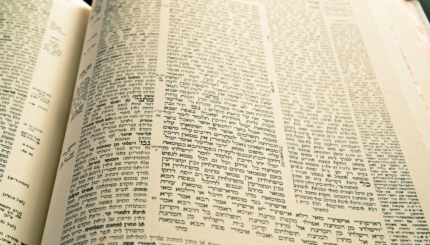Is it to listen to Neshama Carlebach in concert? Go to an opera where women are singing solos? Enjoy the latest production of “Fiddler on the Roof“?
Based on traditional rabbinic law, the prohibition known as kol isha (literally, “a woman’s voice”) is based on a verse from the Song of Songs 2:14: “For your voice is sweet (arev) – and your appearance pleasant (naveh).” It has had the Orthodox world in yet another gender-driven debate.
Turning that verse inside out in order to protect the men from the allure of a female voice and the transgression of the laws of ervah (“nakedness”), a man was prohibited from praying or studying in the presence of a singing woman.
The essence behind hearing a woman’s voice is not solely its intrinsic sensuality, as many authorities have indicated, but the functional concern that it might distract a man from his concentration on prayer or study.
Although liberal Jewish communities around the world do not adhere to the strict interpretations of kol isha, in Israel it has become an issue of religious rights for men and women on both sides of the debate.
Last September nine religious soldiers, in obedience to the Kol Isha prohibition, walked out of a mandatory Israel Defense Forces (IDF) training course because it included women’s singing.
An IDF committee was formed to study the issue and make a recommendation about how to handle this military insubordination in light of this religious law. The decision? The army required all soldiers to remain at these mandatory training sessions regardless of the kol isha prohibition.
The religious authorities who have jurisdiction over the Kotel have framed their opposition to women publicly praying at the Western Wall around the kol isha prohibition. Since 1967, women’s collective voices at the have been silenced. In December 1988, Women of the Wall was founded to secure women’s rights to hold and read the Torah in public in the women’s section of the Western Wall. Each month on rosh hodesh, the group meets and prays at Robinson’s Arch, the place designated by the authorities in 2003 for women’s public prayer.
The Psalmist encouarges us to “lift our voices” (Pslam 147) and to “open our mouths” (Psalm 144) to declare God’s glory. Our voices are our instruments towards religious freedoms. Let us find the path together as we sing God’s praises, male and female in one united voice.


